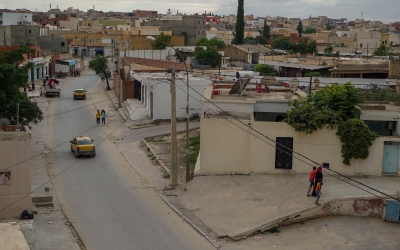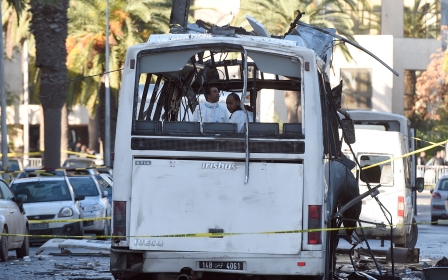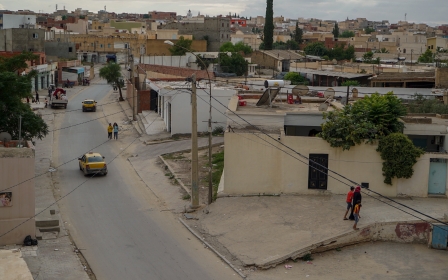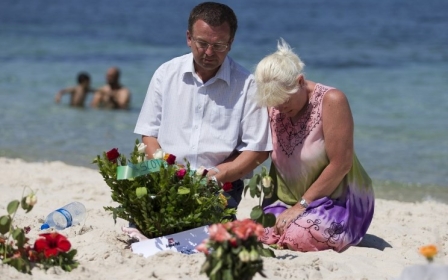Suicide bombing kills police officer near US embassy in Tunis
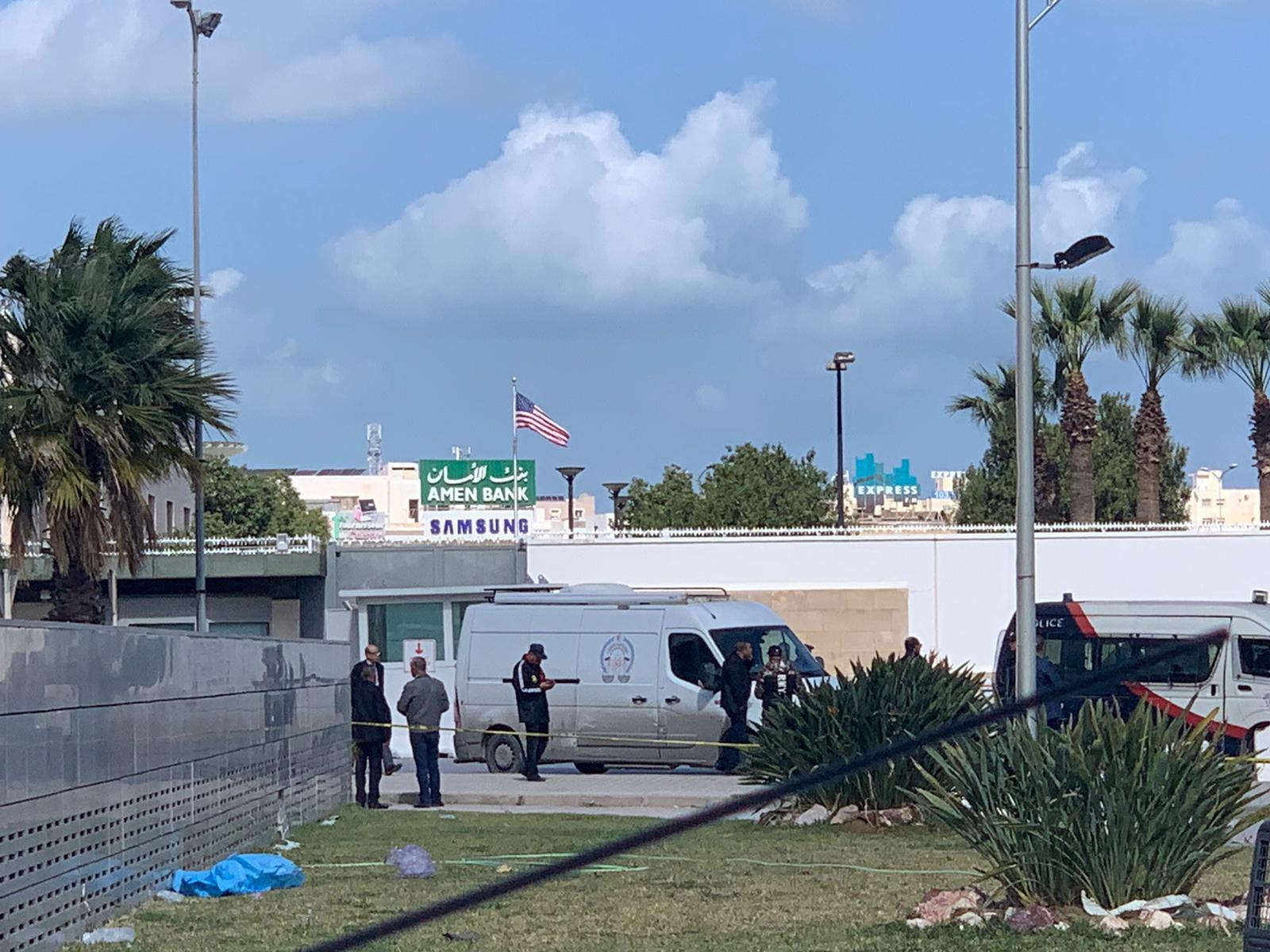
A suicide bombing near the US embassy in the Tunisian capital killed a police officer and wounded five others, authorities said, in one of the worst attacks on security forces in months.
Tunisia's Interior Ministry said one police officer died from his wounds following Friday's blast, while five others sustained injuries of varying severity.
Witnesses told Middle East Eye that two men on a motorbike detonated their explosives after failing to force their way through the main gate of the embassy in the capital's Berges du Lac II district.
Body parts were strewn more than 50 metres from the blast site, while a scorched motorbike could be seen near a damaged police car.
"There was a loud explosion and when I went towards the gates of the embassy I saw pools of blood and the remains of one of the terrorists," said Ahmad Hassan, an eyewitness.
"Ambulances rushed to the scene and the wounded officers were quickly taken to hospital."
Sofien Selliti, a spokesman for Tunisia's counter-terrorism division, told reporters that the motorbike was carrying a "large amount of explosives."
The nearby Tunisian stock exchange and office of telecommunications firm Ooredoo were both forced to evacuate, while police carried out a raid on a home in the impoverished neighbourhood of Kram.
There was no immediate claim of responsibility for the attack.
US outraged by the attack
"It was a homemade explosive device and we are looking for those who helped make it," Interior Minister Hichem Mechichi told reporters.
Donald Blome, the US ambassador to Tunisia, said he was "outraged" by the attack, before adding that all embassy personnel were safe and accounted for.
"I would like to thank the Tunisian authorities for their immediate protection of the US Embassy today, as well as their rapid response in investigating the situation," he said in a statement.
The attack took place as dozens of US military personnel were visiting Tunisia to attend the inaugural Tunisian Aerospace Defence Exhibition in Djerba.
Earlier this week, the US approved a possible sale of four AT-6C Wolverine light attack aircraft to Tunisia, worth about $325m.
Tunisia has seen sporadic attacks in recent years, with the local chapters of the Islamic State group (IS) and al-Qaeda recruiting a new generation of locals to carry out attacks.
In June, IS carried out two suicide attacks in Tunis, killing one member of the security forces and wounding at least eight others.
In 2015, IS attacked Tunis's Bardo Museum, a beach resort in Sousse and presidential guards in the capital. Dozens were killed, mostly foreign tourists.
Armed groups have been operating in remote areas around the North African country's border with Algeria since a popular uprising removed longtime autocrat Zine el-Abidine Ben Ali in 2011.
Tunisia, which has a large tourism sector, has seen its already-stuttering economy damaged by the fallout of such attacks.
Middle East Eye delivers independent and unrivalled coverage and analysis of the Middle East, North Africa and beyond. To learn more about republishing this content and the associated fees, please fill out this form. More about MEE can be found here.


